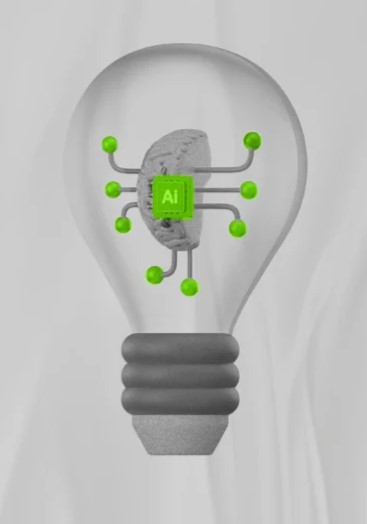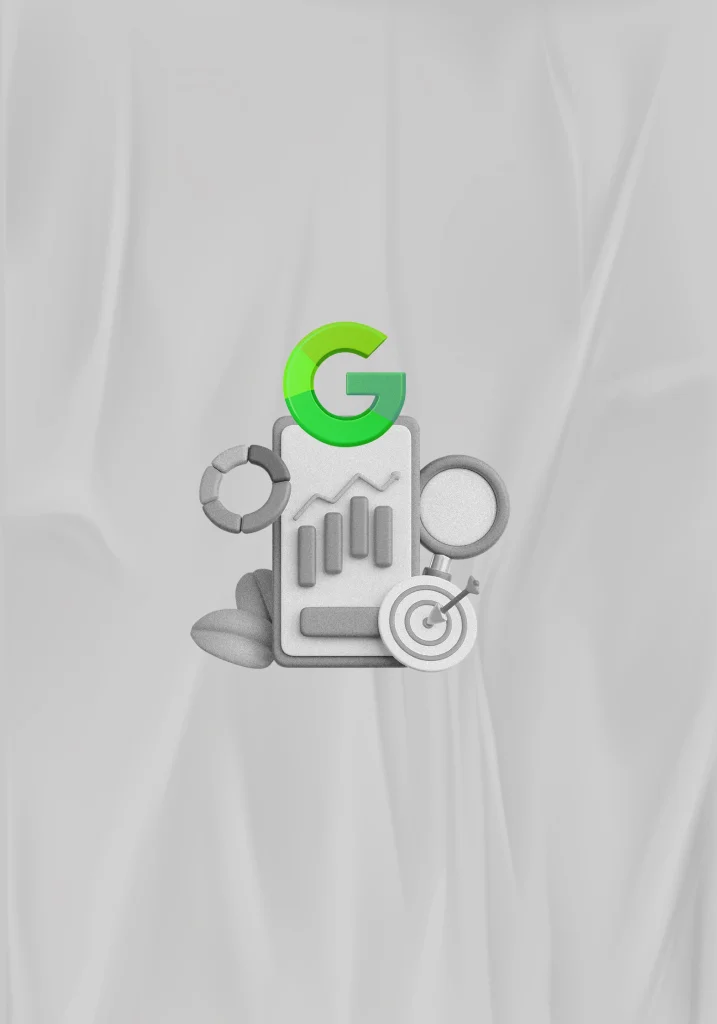Google I/O 2025 delivered more than just a tech spectacle — it marked a turning point in AI innovation. Packed with powerful revelations, the event spotlighted next-gen tools designed not just to impress, but to transform how businesses operate and grow. From real-time multimodal assistants to immersive communication and smart automation, the Google I/O 2025 highlights a future that’s already arriving. These AI updates from Google aren’t optional add-ons — they’re strategic upgrades every forward-thinking brand must explore to stay competitive in an AI-first world. This year, it’s not about what’s new — it’s about what’s next.
1. Gemini 2.5 – The AI Brain Gets Smarter
Gemini 2.5 isn’t just an upgrade — it brings remarkable improvements that make it the best version of Gemini yet! This version is equipped with thinking models with deeper reasoning, configurable thinking budgets, and an experimental deep thinking mode. Let’s understand the key features of this enhanced reasoning and problem-solving advancement.
- Deeper Reasoning: Gemini 2.5 is designed to be capable of reasoning through thoughts before generating any of the responses. With this feature, it can analyze queries, break down complex tasks into simpler ones, and plan outputs with enhanced accuracy and relevance.
- Configurable Thinking Budgets: The thinking budget refers to the number of tokens used for reasoning. It can be easily controlled in this version of Gemini, allowing users to optimize for response quality and cost depending on the task’s complexity.
- Deep Think: This is an experimental feature, and it is introduced in Gemini 2.5 Pro. With Deep Think, Gemini can facilitate even more sophisticated problem-solving, particularly in complex mathematical and coding challenges.

2. New Google Tools for Businesses: Astra & AI Ultra Redefine Productivity
Let’s learn about two new AI updates by Google, which will make your daily tasks smoother with the assistance of sophisticated AI capabilities and technologies.
Project Astra:
Project Astra is Google DeepMind’s research prototype and vision for a universal AI assistant. The aim is to build an AI that can be a truly useful companion, helping with daily tasks, recalling context, and offering real-time information based on what it observes and hears.
It is also designed to be a multimodal AI agent that can perceive, comprehend, and act upon the world in real-time. This is possible through different inputs such as text, audio, images, and video (e.g., through phone cameras or smart glasses).
Google AI Ultra:
AI Ultra is a premium subscription plan offered by Google that provides access to Google’s most advanced AI models and features, designed for professionals and developers who need cutting-edge AI capabilities.
What you get from AI Ultra:
- Top-level Gemini access (e.g., Gemini 2.5 Pro with Deep Think mode)
- Advanced video generation tools (like Flow and Whisk with Veo 3)
- Higher usage limits for various AI services (e.g., NotebookLM)
- Early access to experimental AI agents.
3. Smarter & Contextual Results with Google Search AI Mode
The business strategy for Google I/O 2025 was crafted to mark its dominance in the AI landscape. The frequently used Google Search has changed its role from just being a search engine to a friend that suggests answers, completes tasks, and proactively offers personalised assistance before you even ask.
AI Updates from Google are transforming the way you search on the internet. Generative AI snapshots and deeper answers mean content marketing must now focus on authority and addressing nuanced queries, while follow-up prompts emphasise continuous engagement for brand discoverability beyond initial clicks.
4. Google I/O 2025 Highlights: Video Gets Smarter and Sharper
New Google Tools for Businesses have transformed the tech-enabled future of video calls and video generation. The future of MNCs, remote teams, hybrid work, and education is now powered by AI-driven communication, real-time translation, and high-quality content creation.
- Project Starline & Google Beam: These tools can be mentioned as the promising future of 3D video calls. Real-time, high-fidelity face-to-face interactions will take a great leap within hybrid and remote work models. The evolution of 3D communication is another prominent output of the latest AI updates from Google.
Beam’s more practical rollout is a revolutionary move for B2B applications. It leverages an AI-driven volumetric video model that transforms 2D video feeds into realistic 3D representations in real time. The core B2B application remains significantly improved remote collaboration. Beam aims to reduce “meeting fatigue” and increase engagement by providing a nearly in-person experience.
- Veo & Imagen – AI for Visual Creation: Veo is used for high-quality AI video generation, while Imagen is useful for detailed AI-generated imagery. With the new AI updates from Google, these two Google tools for businesses are capable of integration possibilities with platforms like YouTube, Workspace, and other ad channels.
These improved tools can be used innovatively by marketers, designers, and even teachers to maximize their influence and propel the growth of their business.
- Google Meet with real-time AI translation: One of the most popular virtual meeting platforms is now capable of doing live translations with lip sync. This advanced feature opens up global collaboration opportunities, removing language barriers. MNCs, remote teams, and education systems are going to benefit immensely from this, enabling smoother communication, greater inclusivity, and more effective cross-cultural collaboration.
5. Project Mariner: Autonomous AI Agents for Enterprise
Project Mariner is Google DeepMind’s experimental AI browser agent. It is designed to revolutionize the user interaction with the web. Powered by the Gemini 2.5 model, Mariner is aiming to go beyond traditional browsing. This latest version will enable you to understand, plan, and execute complex web-based tasks on your behalf. Let’s go through some of its key features.
Autonomous Web Interaction: Mariner acts like your digital assistant within your Chrome browser. It can perform many regular actions like clicking buttons, filling out forms, scrolling, navigating between pages, etc. Since it can watch and understand everything on your screen, it can help you with all of this based on your natural language instructions with ease.
Multimodal Reasoning: Mariner works on Gemini’s multimodal capabilities. It processes both visual and textual information from web pages, allowing for a much richer and more contextual understanding of your requests.
Task Execution and Planning: Mariner can interpret complex goals and break them down into small, actionable steps. This bypasses the requirement of step-by-step guidance. It will often show you the planned actions, allowing you to intervene to maintain transparency.
Multitasking Capabilities: A significant enhancement announced with the AI updates from Google in Project Mariner is the ability to run on cloud-based virtual machines. This allows it to handle up to 10 tasks simultaneously in the background.
6. Smarter Emailing with Gmail’s AI-First Smart Replies
Gmail is stepping into the AI era with intelligent Smart Replies that go beyond quick responses. From smart drafting and tone adjustments to prioritising replies based on context, it streamlines communication effortlessly. Gmail users can now respond faster and more effectively. Best of all, it delivers productivity gains with little to no training required.
7. Smart Glasses & Android XR – A Peek into Wearable AI
Today’s world is surrounded by smart devices. Innovations are at their peak, and this smart AI is making its way even into wearable devices. Google’s latest push brings us smart glasses powered by Android XR. These wearable devices enable AR overlays, real-time visual search, and contextual interactions.
The potential of hands-free AI is immense in various sectors like logistics, healthcare, field operations, etc. Google’s Smart Glasses mark a significant step towards practical, business-ready wearable AI.
Frequently Asked Questions
What is Google I/O 2025?
Google I/O 2025 is a conference where the company reveals the latest innovations, tools, and platforms. It is conducted annually. This year, Google I/O showcased AI-powered innovations and advancements in intelligent assistance and communication.
When was Google I/O 2025 held?
Google I/O 2025 was held on May 20–21, 2025, with the event taking place both in-person at Shoreline Amphitheatre, Mountain View, CA, and online via livestream.
What are the top announcements from Google I/O 2025?
Business Strategy for Google I/O 2025 was a bit different. Many upgrades were announced at this conference. Some of the Google I/O 2025 highlights can be listed as, Gemini 2.5 Upgrade, a smarter, multimodal AI, Project Astra, 3D Communication, and Smart Glasses with Android XR.
What is Gemini 2.5 and how does it work?
Gemini 2.5 refers to the latest generation of Google’s advanced multimodal large language models (LLMs), specifically encompassing Gemini 2.5 Pro and Gemini 2.5 Flash, and more recently, Gemini 2.5 Flash-Lite. These models build upon the capabilities of previous Gemini versions, offering significant enhancements in reasoning, coding, and multimodal understanding.



